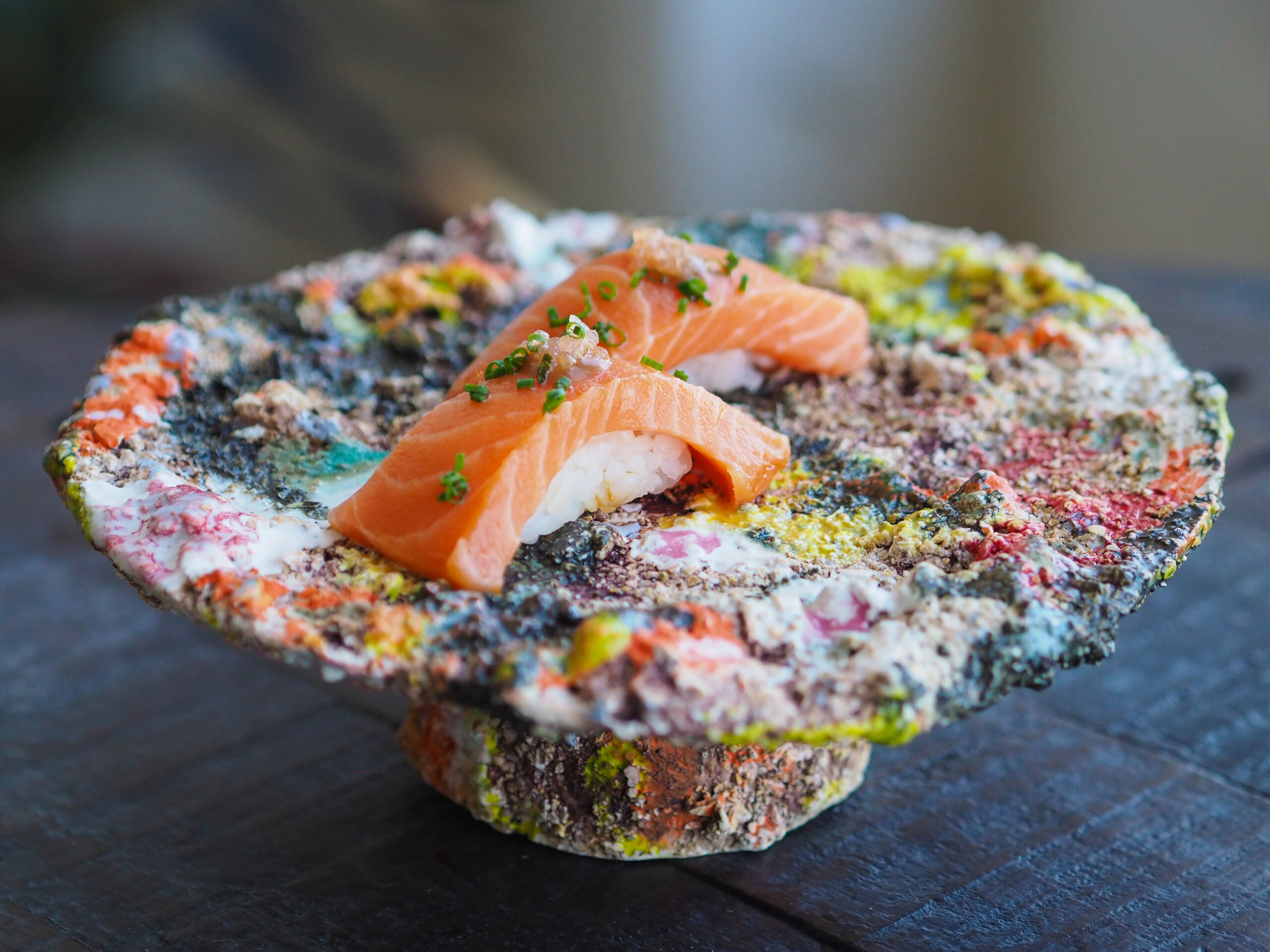The future of sustainable seafood could be coming to a poké bowl near you.
Wildtype Foods, the San Francisco startup manufacturing “cultivated salmon” out of a former brewery in the Dogpatch, is partnering with grocery store sushi company SNOWFOX and national chain Pokéworks to distribute their products to adventurous eaters across the country.
While the availability of alternative protein products has skyrocketed in the past few years (think, everything from the Impossible Burger to the plant-based “eggs” from local company Eat Just), Wildtype fits into an emerging category called cellular agriculture.
Essentially, the startup grows its food directly from salmon cells so that no individual fish is harmed to create its edible product. Wildtype’s fish itself is virtually visually indistinguishable from a salmon fillet found in a supermarket with the taste—or so the company says—to match.
The company bills its fish as free from the harmful toxins and pollutants sometimes found in fresh seafood, while also being more environmentally friendly.
In brief, Wildtype’s process works by taking existing cell samples from sushi-grade fish, which are then put in a bioreactor tank and fed to help them grow and multiply. From there, the cells are placed in a type of scaffolding to help them mature into a familiar form like a salmon fillet.
The startup’s partnership with SNOWFOX—which operates sushi bars at more than 1,200 grocery locations nationwide and Pokéworks, which currently has around 65 locations, including seven in California—is meant to get the company’s products in front of more people faster.
However, there’s still an open question of when exactly that will be.
First comes scaling up manufacturing of the startup products and wading through the regulation to get their fish on dining room tables.
In order to legally sell their products, Wildtype and its cohort in the cellular meat space are required to get approval from the Food and Drug Administration, a process typically more associated with drug development.
Regulators are weighing how these novel products should be labeled to consumers and evaluating safety standards in the production process. Currently, there are no food products made from cultured animal cells for sale in the U.S.
Eat Just, also based in San Francisco, reached a major milestone last December when its lab-grown chicken product was approved by regulators in Singapore, marking its status as the first cultured meat sold and served at a restaurant in the world.
Wildtype, which has raised around $20 million from investors like Root Ventures, Spark Capital and Mission BioCapital, opened up its pilot production plant in San Francisco earlier this year.
The Dogpatch facility, which also includes an in-house sushi bar and spaces for educational programs and viewings, currently has the capacity to produce around 50,000 pounds of sushi-grade salmon fillets per year. The idea is eventually to be able to ramp that number up to something like 200,000 pounds of product annually.
